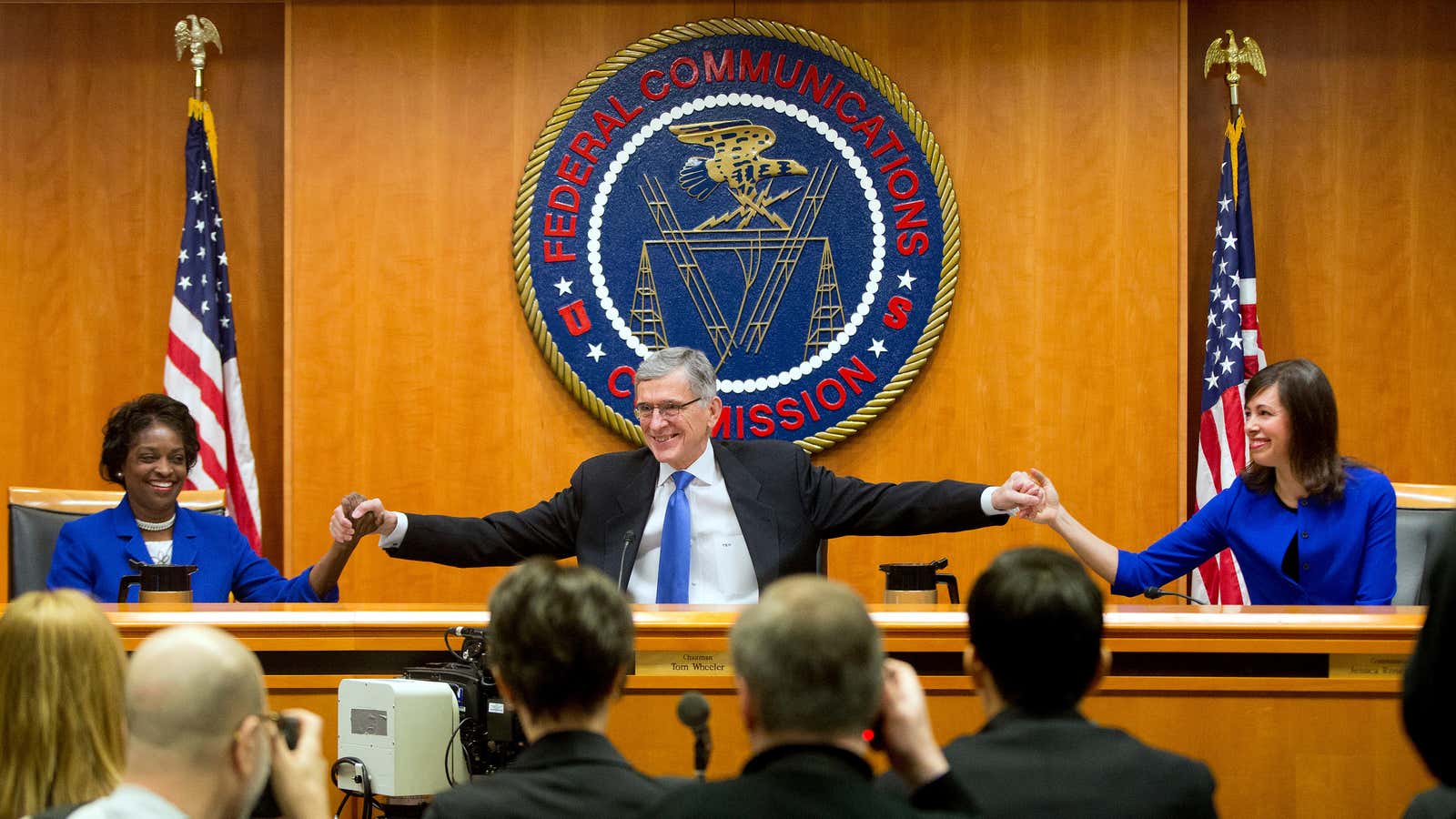The US Federal Communications Commission just adopted strict net neutrality rules that will treat the internet like a public utility. What’s in the new regulations? There are three major principles that internet service providers—like Comcast, AT&T, Time Warner Cable, and Verizon—have to follow when sending data from their networks to your computer:
No blocking
Internet providers can’t prevent you from accessing “legal content, applications, services, or non-harmful devices” when you’re on the internet. This is intended to prevent censorship and discrimination of specific sites or services. Some open internet advocates worry the phrase ”legal content” will create a loophole that might let internet providers block stuff they see as questionable on copyright grounds without a fair hearing.
No throttling
Internet providers can’t deliberately slow down data from applications or sites on the internet. That means, for instance, that a broadband company have to let all traffic flow equally, regardless of whether it’s coming from a competitor or a streaming video service like Netflix that uses a lot of data.
No paid prioritization
Internet providers can’t charge content providers extra to bring their data to you faster. That means no internet “fast lanes,” because regulators fear they will lead to degraded service for anyone not willing to pay more.
If content providers or the networks that underly the internet complain about internet providers acting as gatekeepers for their users, the FCC says it will have the authority “to hear complaints and take appropriate enforcement action if necessary, if it determines the interconnection activities of ISPs are not just and reasonable.” It’s not clear yet what that will mean in practice.
